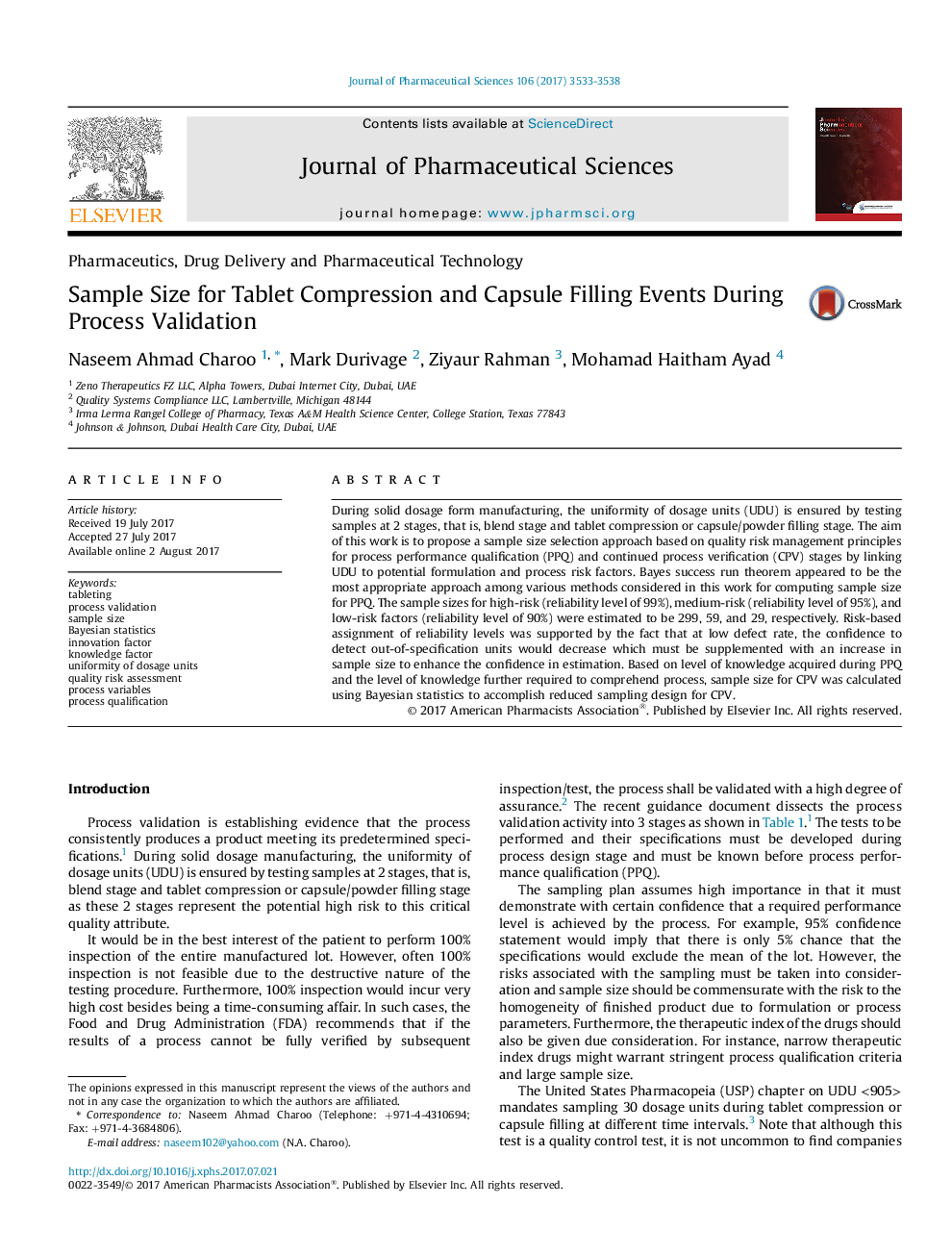| Article ID | Journal | Published Year | Pages | File Type |
|---|---|---|---|---|
| 8513676 | Journal of Pharmaceutical Sciences | 2017 | 6 Pages |
Abstract
During solid dosage form manufacturing, the uniformity of dosage units (UDU) is ensured by testing samples at 2 stages, that is, blend stage and tablet compression or capsule/powder filling stage. The aim of this work is to propose a sample size selection approach based on quality risk management principles for process performance qualification (PPQ) and continued process verification (CPV) stages by linking UDU to potential formulation and process risk factors. Bayes success run theorem appeared to be the most appropriate approach among various methods considered in this work for computing sample size for PPQ. The sample sizes for high-risk (reliability level of 99%), medium-risk (reliability level of 95%), and low-risk factors (reliability level of 90%) were estimated to be 299, 59, and 29, respectively. Risk-based assignment of reliability levels was supported by the fact that at low defect rate, the confidence to detect out-of-specification units would decrease which must be supplemented with an increase in sample size to enhance the confidence in estimation. Based on level of knowledge acquired during PPQ and the level of knowledge further required to comprehend process, sample size for CPV was calculated using Bayesian statistics to accomplish reduced sampling design for CPV.
Keywords
Related Topics
Health Sciences
Pharmacology, Toxicology and Pharmaceutical Science
Drug Discovery
Authors
Naseem Ahmad Charoo, Mark Durivage, Ziyaur Rahman, Mohamad Haitham Ayad,
